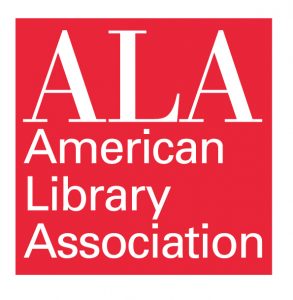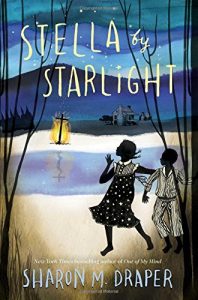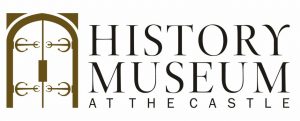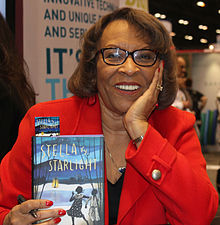 Across the nation there are community reading programs that ask everyone to read and discuss the same book. For almost 20 years the American Library Association has developed resources for librarians to build community–wide reading programs. People who share a common reading experience come together to discuss the book.
Across the nation there are community reading programs that ask everyone to read and discuss the same book. For almost 20 years the American Library Association has developed resources for librarians to build community–wide reading programs. People who share a common reading experience come together to discuss the book.
“The idea is that the city that opens the same book closes it in greater harmony,” Mary McGrory (The Washington Post, March 17, 2002).
Whether it’s a city-wide book club or a state-wide reading campaign, communities of all shapes and sizes have adopted the concept which originated with the Washington Center for the Book in 1998.
 Read. Think. Talk. Listen. Grow. That’s the tagline for the Fox Cities Reads, a collaborative project of the public libraries in Appleton, Kaukauna, Kimberly, Little Chute, Menasha, and Neenah, and UW-Fox Valley. Since 2007, one book each year has been selected to promote and encourage people in our communities to read, think, talk, listen, and grow together.
Read. Think. Talk. Listen. Grow. That’s the tagline for the Fox Cities Reads, a collaborative project of the public libraries in Appleton, Kaukauna, Kimberly, Little Chute, Menasha, and Neenah, and UW-Fox Valley. Since 2007, one book each year has been selected to promote and encourage people in our communities to read, think, talk, listen, and grow together.
 This year Sharon Draper and her middle-grade novel, Stella by Starlight, has been selected for the Fox Cities Reads 2017. Draper’s work of historical fiction begins in 1939 when 11-year-old Stella and her brother observe the flames of a KKK cross-burning in their African American neighborhood in North Carolina. Stella’s ambition to become a writer parallels her father’s determination to vote and she witnesses the entire black community accompany her father and two other registered black voters in a silent march to the polls.
This year Sharon Draper and her middle-grade novel, Stella by Starlight, has been selected for the Fox Cities Reads 2017. Draper’s work of historical fiction begins in 1939 when 11-year-old Stella and her brother observe the flames of a KKK cross-burning in their African American neighborhood in North Carolina. Stella’s ambition to become a writer parallels her father’s determination to vote and she witnesses the entire black community accompany her father and two other registered black voters in a silent march to the polls.
While set in the south during the Jim Crow era, this novel is a wonderful jumping off point for communities along the Fox River Valley in East Central Wisconsin to discuss the history of race relations and recent events.
“A Stone of Hope: Black Experiences in the Fox Cities” is an exhibit at The History Museum at the Castle about local Black history from the 1700s to the present. Before 1900, the Fox Cities were home to a growing black population of Civil War veterans, small business owners, and community leaders. Increasing harassment from police, racial exclusion at places of business, racial covenants barring home ownership, minstrelsy advertising, and entertainment meant most blacks left the Fox Cities by 1920. Appleton’s “past sundown” custom and racial exclusion began in 1915. When black contralto Marian Anderson performed at the  Lawrence University Chapel in Appleton in 1941, she was not allowed to eat in the public dining room of the Conway Hotel. Thomas Barrows, then-president of Lawrence University, intervened so Anderson could at least be served dinner in her room. On Saturday, April 1, at 11 am, join Dr. Sabrina Robins at the History Museum for a talk about what occurred to make Appleton a “Sundown Town” in the 1930s.
Lawrence University Chapel in Appleton in 1941, she was not allowed to eat in the public dining room of the Conway Hotel. Thomas Barrows, then-president of Lawrence University, intervened so Anderson could at least be served dinner in her room. On Saturday, April 1, at 11 am, join Dr. Sabrina Robins at the History Museum for a talk about what occurred to make Appleton a “Sundown Town” in the 1930s.
In recent years there has been a resurgence in racial hostility from some white residents. In 2010 an Appleton man who identified himself as a neo-Nazi was convicted of battery for beating a black man outside a Little Chute tavern. Michael Verhaagh, covered in tattoos—a swastika and a likeness of Adolf Hitler—was sentenced to 14 months in jail. In 2011, two young men broke into two gas stations in Appleton because they were “owned by Arabians.” While the number of hate crimes peaked in Wisconsin around 2010, the numbers don’t tell the whole story. Racists have migrated to online sites like Stormfront. This neo-Nazi forum has about 300,000 registered users, up nearly 60 percent in the past five years. The anonymity of the internet allows them to hide behind a new kind of white sheet and spread their hateful message to an even larger audience.
Within days of the most recent presidential election, Appleton Area School District Superintendent Lee Allinger sent a letter to all parents expressing concerns about the number of racist comments being directed at students of color since Nov. 8. More than 50 reports were filed during the two weeks between the election and Thanksgiving break. The Unitarian Universalist Church of Appleton had their “Black Lives Matter” banner stolen four times this past year. Each time, the theft came shortly after police killings of black men and subsequent protests. And Lawrence University students of color have complained for years about the racial epithets shouted out at them as they cross College Avenue going from class to class.
It’s a good time for community conversations about Sharon Draper’s novel, Stella by Starlight, and its relevance to our lives today. Discussions of the novel have already been held by the Evening Book Club at the Little Chute Public Library, the Books & Brews Book Club at Seth’s Coffee, and at the Menasha Public Library. Upcoming conversations are scheduled for April 11 at the Kaukauna Public Library, April 19 at the Downtown Book Club at the Appleton Public Library, and the Monday Morning Book Klatch at the Neenah Public Library.
 Sharon Draper will be in the Fox Cities next week. She will visit students at Riverview Middle School in Kaukauna, Maplewood Middle School in Menasha, and Appleton West High School.
Sharon Draper will be in the Fox Cities next week. She will visit students at Riverview Middle School in Kaukauna, Maplewood Middle School in Menasha, and Appleton West High School.
There are two opportunities next week for the public to meet author Sharon Draper and hear how her grandmother’s diary inspired this story of Stella, and more. On April 4 at 6:30 pm, Sharon Draper will give a presentation open to the public at UW-Fox Valley. The next day at the Neenah Public Library, Sharon Draper will give a presentation at 2 pm open to the public.
Sharon Draper is a two-time Coretta Scott King Award-winning author, most recently for Copper Sun, and previously for Forged by Fire. She’s also the recipient of the Coretta Scott King/John Steptoe Author Award for New Talent for Tears of a Tiger and the Coretta Scott King Author Honor for The Battle of Jericho and November Blues. She lives in Cincinnati, Ohio, where she taught high school English for twenty-five years.
Stella by Starlight was honored with the 2016 Charlotte Huck award from the National Council of Teachers of English and received starred reviews from Kirkus, Publisher’s Weekly, The Horn Book, School Library Journal, Shelf Awareness, BookPage, and the New York Times, to name a few. Read them here. Stella by Starlight was also named as one of the Best Middle Grade Books of 2015 by Kirkus, and as one of the Notable Children’s Books of 2015 by the New York Times.
One book, one community.
